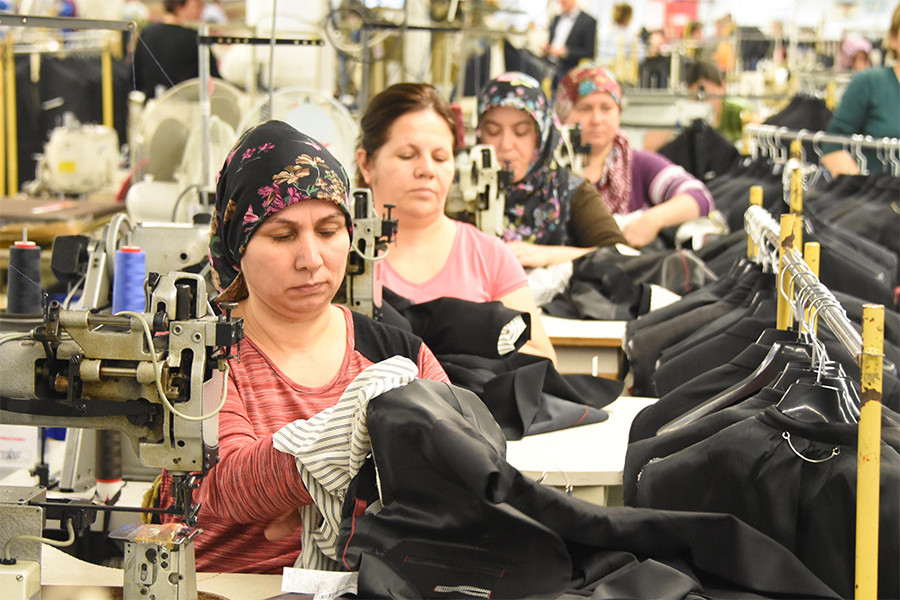Women Workers’ Status in Turkey by Numbers

Women have been pushed to work precariously, flexible and unregistered; they have been debarred from some rights such as health care, retirement, free nursery and so on. In short, there is a certain kind of regression for women in terms of rights.
29 % of the workers in Turkey are women. 42 % of them have lower education than primary school. 35 % of women workers have higher education. This rate is 27 % in male workers. Women’s avarage wages are 9% lower than men’s. So, even though they are more educated than men, their wages are lower.
Every 3 of 10 women are registered workers. Almost half of the working women are unregistered. This results in making them debarred from the very fundamental rights such as health care, retirement and so on.
Women work more than 45 hours a week, which is the maximum weekly working hour. According to data collected in November 2017, 3 million 99 thousand women (34% of working women) work more than 45 hours a week. 1 million 26 thousand women work unregistered and more than 45 hours a week.
WOMEN ARE THE ONES MOST AFFECTED BY UNEMPLOYMENT
Women are affected by unemployment the most and unemployment rate is constantly rising. It was 11.9 % in 2014, and it increased to 13.4% in November, 2017.
Younger women’s unemployment rate is two times more than OECD and EU countries. Younger women’s unemployment rate was 20% in 2014 and it increased to 25% in November 2017. According to the official figures, there are more than 16 million poor and every 2 of 10 women is poor.
WOMEN’S UNIONIZATION RATE IS 6 PERCENT
Women workers’ unionization rate was 4.6 percent and it increased to 8.1 in February, 2018. However, this is far too low in comparison with male workers’ unionization rate. When considering unregistered employment, women workers’ actual unionization rate decreases to 6 percent.
LOW WAGE, UNEMPLOYMENT, UNSECURED WORK
According to DİSK (Confederation of Progressive Trade Unions of Turkey), 63.9 % of working women are not content with their work environment. Their top three problems are low wage, unemployment and unsecured work.

Bizi Takip Edin